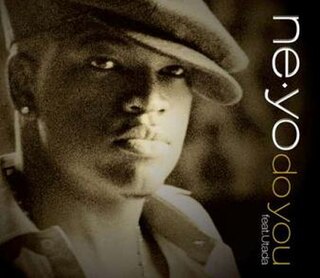
"First Love" is a song by the Japanese-American singer-songwriter Hikaru Utada. It was released on April 28, 1999, as the third Japanese language single from her second studio album, First Love, which was issued a month previously. It was certified double platinum for 800,000 copies shipped to stores in Japan.
"This Is Love" is Hikaru Utada's first Japanese digital single. It was released on May 31, 2006 as a promotional single for her fourth Japanese studio album. "This Is Love" was tied-in as the CM song for a Nissin cup noodle campaign and the opening theme for an anime "Freedom," which was also tied into the Nippon campaign. The digital single reached number one in virtually every online music store in Japan prior to the ULTRA BLUE album's release, including the most used store in Japan, iTunes Japan, as well as OnGen, among others. Utada herself is quoted to have said that this song is about expressing that "Love is like a mix of extremes: anxiety and peace."

"Boku wa Kuma" is a song by Japanese American singer-songwriter Hikaru Utada, serving as her 17th Japanese single and 24th single overall. The single was released on November 22, 2006, following the release of her previous studio album, Ultra Blue (2006). It came two months after the conclusion of Utada's United 2006 tour.

"Beautiful World" is a song by Japanese American musician Hikaru Utada. It served as the theme song for Evangelion: 1.0 You Are (Not) Alone, the 2007 film reboot of the anime Neon Genesis Evangelion. It was released as a double A-side single on August 29, 2007 along with her song "Kiss & Cry", which had been released digitally three months earlier. The song was written and co-produced by Utada, while Akira Miyake and the singer's father Teruzane Utada served as producers. In 2009, a remix of the song, "Beautiful World " served as the theme song of the second film in the series, Evangelion: 2.0 You Can (Not) Advance.

"Do You" is a 2007 single by American singer-songwriter Ne-Yo. It is about Ne-Yo questioning his ex-girlfriend if she ever thinks about him anymore. It is the second single from his second album, Because of You. The single was officially released to radio the week of June 12, 2007. In an interview with BET, Ne-Yo said that "Do You" is the second part to his song "So Sick" from his debut album, In My Own Words.

"Heart Station" is a song by Japanese musician Hikaru Utada, which was released as a double A-side single alongside her song "Stay Gold" on February 20, 2008. It served as the fifth single from her fifth Japanese-language album Heart Station. "Heart Station" was fully written, composed and produced by Utada herself. The song was created with the image of a song that would come on if you were to turn on your car radio on a late-night highway on your way home from work or play, with the title meaning a place that transmits radio waves from the heart. Musically, it is a midtempo pop ballad. Lyrically, it speaks about bidding someone adieu and still trying to reach them and maintain their presence in your life.

"Prisoner of Love" is Hikaru Utada's 21st Japanese single and 30th single overall. It was cut from her fifth Japanese album, Heart Station (2008), making it her first Japanese recut single in nine years since "First Love" in 1999. "Prisoner of Love" is the theme song for the Fuji TV dorama Last Friends, making it her first song since "Sakura Drops" in 2002 to be used as a main theme song. It was released as a digital download on March 26, 2008, and as a CD single on May 21.
"Eternally" is a song by Japanese musician Hikaru Utada, from their 2001 album Distance. It was re-arranged in 2008 as "Eternally (Drama Mix)" for use in the Maki Horikita starring Fuji TV drama Innocent Love. It was released as a digital single on October 31, 2008, and eventually released onto CD in March 2009, on an EMI compilation album I: Zutto, Zutto, Aishiteru (i(アイ)~ずっと、ずっと、愛してる~).
Johannes Maria Leenders Zwaan, better known as Soulja, is a Japanese hip-hop musician and songwriter best known for his collaborations with singer Thelma Aoyama, "Koko ni Iru yo" and "Soba ni Iru ne" – the latter of which was the former Guinness World Records holder for the best selling digital single of all-time in Japan.
Lil'B is a Japanese female pop duo, consisting of singer Mie and rapper Aila. They debuted in 2008 with "Orange," the 15th ending theme song for the anime Bleach. They are best known for their song "Kimi ni Utatta Love Song," which topped the RIAJ's monthly ringtone chart in 2008. They are also well known for their single "Tsunaida Te", which was the 3rd ending theme song for the anime Fullmetal Alchemist: Brotherhood.

"If" is a song by Japanese pop singer Kana Nishino. It was released as her 11th single on August 4, 2010. The song was given the working name "I Swear" before its release. In initial promotional material about the single, it was described as a mellow medium tempo ballad, written about "a meeting with fate."

"Hotaru/Shōnen" is the twenty-sixth single by Japanese artist Masaharu Fukuyama. It was released on 11 August 2010.

"Kimi tte" is a song by Japanese pop singer Kana Nishino. It was released as her 12th single on November 3, 2010. The song was marketed as a "heart-warming tender" mid-tempo ballad in the initial press release, also describing the lyrics, as being about "scaling up passion to love."
"Can't Wait 'Til Christmas" is a song by Japanese singer-songwriter Hikaru Utada. It was released on Utada's second Japanese compilation album, Utada Hikaru Single Collection Vol. 2, on November 24, 2010.

"Ai o Komete Hanataba o" is a song by Japanese pop-rock act Superfly. Used as Edison no Haha's theme song, "Ai o Komete Hanataba o" was released as the band's fourth single on February 27, 2008. The song was Superfly's break-through single, breaking into the Oricon physical singles chart's top 20. As of 2011, it is Superfly's most successful single, being certified as a million ringtone download, triple platinum as a cellphone download, and single platinum for digital sales.

"Jiyū e Michizure" is Japanese singer-songwriter Ringo Sheena's digital single, released on May 16, 2012. The song is featured as the theme song for the Japanese television drama Ataru. "Jiyū e Michizure" reached number one in iTunes Store charts, peaked at 5 on the Japan Hot 100, and at 7 on the RIAJ Digital Track Chart. It was certified gold for 100,000 copies downloaded to computers in 2013.
The discography of Japanese pop singer Kana Nishino consists of seven studio albums, six compilation albums, one EP, thirty-four singles and ten video albums. Nishino debuted in 2008 under Sony Music Japan, and gained national recognition with the singles "Tōkutemo" and "Kimi ni Aitaku Naru Kara" (2009). Nishino has released some of the most digitally successful songs in Japan: "Motto..." (2009), "Dear..." (2009), "Best Friend" (2010), "Aitakute Aitakute" (2010), "If" (2010) and "Kimi tte" (2010), all of which were certified million by the RIAJ.
The discography of Japanese pop and jazz vocalist Juju consists of six studio albums, four tribute albums, two extended plays, two live albums, five video albums and numerous singles. Juju debuted as a singer in 2001, collaborating with artists such as DJ Masterkey, Spontania and worked on the soundtrack for the film Kyōki no Sakura.
The discography of Japanese pop group AAA includes eleven studio albums, six extended plays, seven compilation albums, eight live albums, one cover album, three remix albums, and 52 singles. All of the group's releases have been with Avex Trax, a subsidiary of Avex Group.











